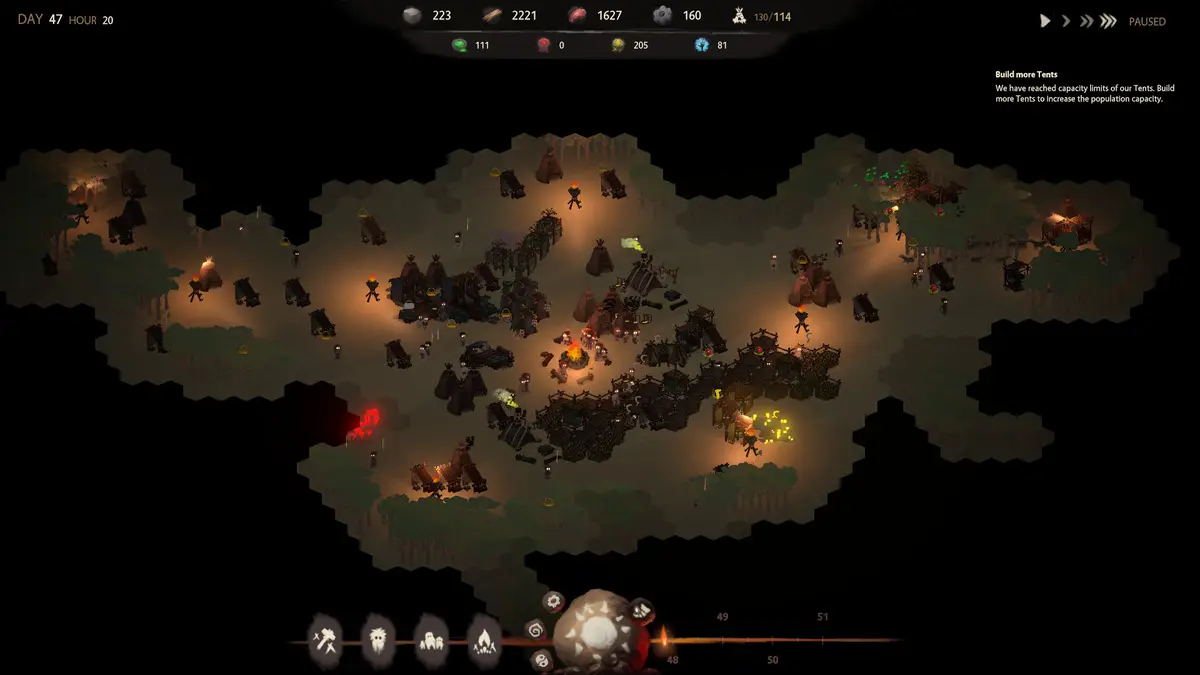The Tribe Must Survive, a unique “tribe-builder” featuring a survival roguelike twist, has managed to capture my interest like no other management sim in recent memory. Scheduled to debut on Steam Early Access on February 22, this game marks a departure from the typical city-building experiences that have often left me either bored or overwhelmed by their survival elements, especially given my tendency to become stressed due to my ADHD. However, wrap this city builder in a cosmic horror package, promising a “Lovecraftian Stone Age,” and I’ll eagerly tear into it, much like a six-year-old on Christmas morning.
My anticipation for The Tribe Must Survive stems from its setting—a city builder unfolding in a time predating cities, where your tribe succumbs to a complete eclipse, compelling you to start anew.
In this game, you assume the role of a primitive tribe leader, responsible for managing and safeguarding your people against lurking dangers in the ever-encroaching shadows. As you enhance your settlement with additional tents, sharper axes, and warmer fires, your tribe expands.

Yet, having more tribe members isn’t inherently beneficial, as they bring with them their own fears, desires, and personalities that may clash with those of others. While you can influence their behavior through rituals, buildings, and upgrades, conflicts will inevitably arise, forcing you to mediate between conflicting sides.
The challenges faced by the tribe’s leader extend beyond resolving disputes among members. Developer Walking Tree Games poses thought-provoking questions such as, “Do you risk a good worker on a potentially deadly journey?” and “Do you spend resources on exploring or exploiting?” Players are confronted with numerous decisions and challenges, requiring a delicate balance between current needs and the tribe’s future survival.
The roguelike elements are not entirely clear, but the gameplay trailer hints at a “night without end” triggered by an eclipse, resulting in chaos and the complete devastation of your tribe. This compels a fresh start, presumably with resources and upgrades retained from previous runs.
Walking Tree’s decision to launch the game in Early Access aims to allow for fine-tuning the game balance and incorporating community feedback over a few months. This approach is intended to deliver the best possible version of the game during Q2, with additional planned content to enhance the overall experience.






